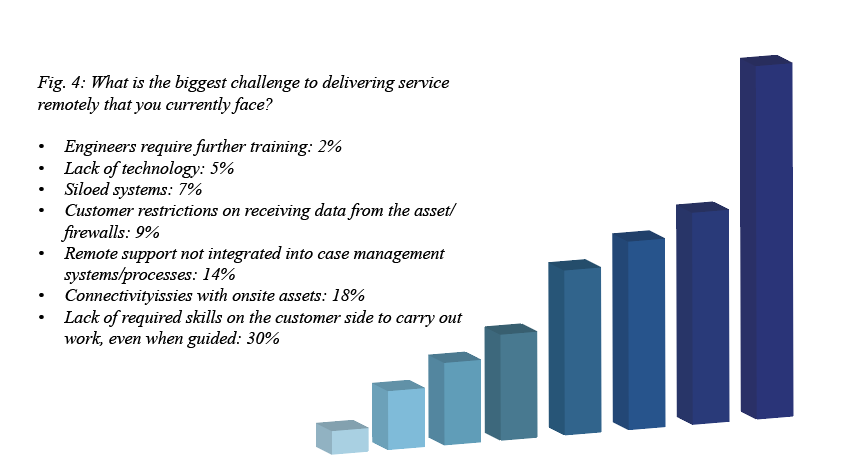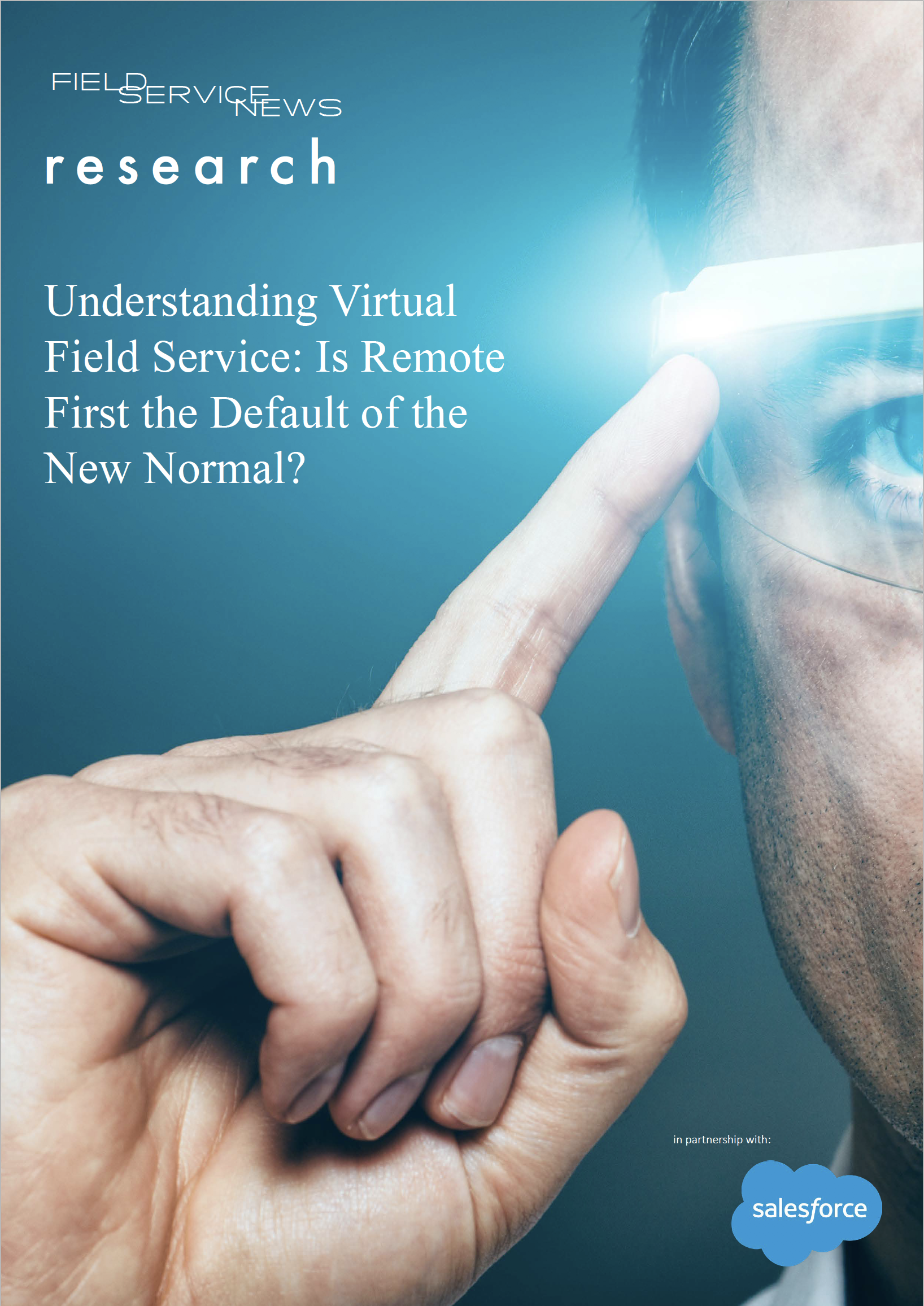It is clear that as a result of the pandemic remote service delivery will become a big part of the new normal, as our analysis so far within this series on a Field Service News Research Project run in partnership with Salesforce has identified. However, with such a massive shift in approach to service delivery, there will, of course, be obstacles to overcome…
Regardless of the levels of sophistication that a field service organisation may have at its disposal when it comes to delivering service remotely, by definition, remote service, means that there will always be aspects of the service delivery outside of the control of the service provider.
Again, given the rapid and widespread rise in demand for remote service delivery, and also factoring in the range of sophistication in the tools and technologies being used to deliver such remote services, the majority of field service companies appear to be still developing an understanding of best-practices in this area.
Essentially, the vast majority of companies in the field service sector are currently making their way through an exceptionally steep learning curve.
Indeed, the magnitude of challenges field service companies face when it comes to delivering service on a remote basis was further highlighted when we asked our respondents to identify the biggest challenge they currently faced with regards to delivering service remotely.
Interestingly, a ‘lack of technology’ was the primary issue for just 5% of respondents (figure 4). The only issue that was identified by fewer respondents than this was ‘engineers require further training’, cited by only 2% of respondents.

Another obstacle that remains slightly more prevalent for field service organisations looking to deliver remote services is an issue that has often been present in these early days of the connected field service era, namely accessing the data from an asset on a customer’s site. This challenge has long been a mainstay of conversations surrounding IoT enhanced field service since the concepts emerged.
However, with only 9% of field service organisations in the study now identifying this as the biggest challenge they face, it seems that the problem is gradually being overcome.
Still, when we factor in a further 18% of field service companies which stated that the biggest challenge that they face is connectivity issues with onsite assets, collectively, connectivity to assets remains an area that requires focus for field service companies seeking to deliver remote service effectively.
One issue that a sizeable amount of companies are facing, which can potentially be easily overcome is where ‘remote support is not integrated into their case management systems or processes’, which was cited as the single largest issue by 14% of companies. Indeed, from a technology perspective, modern field service management solutions such as Salesforce Field Service are capable of integrating the various tools into one system to provide a holistic and connected flow across all types of service calls, whether they be remote or onsite. From a process perspective, understanding and outlining a clearly defined approach to remote service and how that sits within the wider service portfolio is a critical step in redesigning the service strategy to incorporate remote service delivery within the work-flow.
When it comes to the most significant challenge identified by field service organisations regarding service delivery, as is often the case with more complex issues, it is one that may be harder to resolve, but equally, that could potentially open up new opportunities.
That issue is ‘a lack of required skills on the customer side to carry out the work, even when guided’, which was cited as the biggest challenge regarding remote service delivery by almost a third of respondents (30%).
In the short-term, this is, of course going to be a challenge, particularly when mission-critical service delivery needs to be delivered while still operating under the restrictions of lockdowns.
However, could it be that in the ‘new normal’ this could pave the way for training and consultancy which could be leveraged either to open up new revenue streams or to further embed the service organisation within their customers’ ecosystems – ultimately leading to greater customer loyalty?
 Want to know more?
Want to know more?
The full paper is available in the premium resource library













